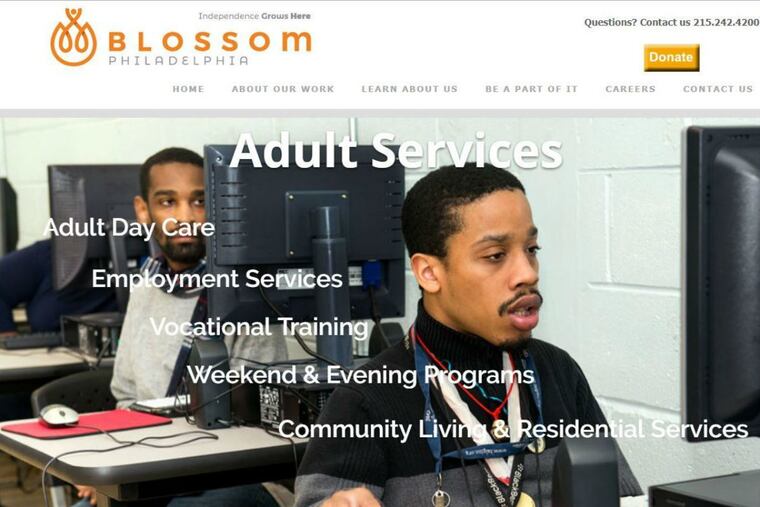Blossom Philadelphia substitute providers in talks with state
Three nonprofits confirmed they are in talks with Pennsylvania Department of Human Services officials to step into the breach created by Blossom Philadelphia's decision to stop providing residential services for intellectually disabled adults.

Three nonprofits confirmed Friday that they are in talks with Pennsylvania officials to play a role in caring for the 89 intellectually disabled adults who live in facilities operated by Blossom Philadelphia, which announced Monday that it was exiting residential services after losing its license in October because of serious deficiencies in the care it provided.
The three organizations are Barber National Institute, JEVS Human Services, and Resources for Human Development. All said negotiations with the Office of Developmental Programs, a unit of the state Department of Human Services, were not complete. The exact nature of their involvement has not been settled.
Blossom said it would transfer its residential services to four providers, but the fourth could not be reached for confirmation.
State officials have declined to provide any details on the transition to new providers. Advocates for the disabled said Friday that deficiencies, including hiccups in the supply of medications, have continued since Blossom's license was revoked on Oct. 24. Among Blossom's residents are 18 who were at the Pennhurst state hospital, which was closed 30 years ago.
Barber National Institute is based in Erie and provides residential services in the Erie, Pittsburgh, and Philadelphia areas. Formally known as the Dr. Gertrude A. Barber Center Inc., it had $72.3 million in revenue in the year ended June 30, 2016. Its website says it operates 27 group homes in the Philadelphia area.
Center City-based JEVS has 35 group homes and served 134 individuals as of June 30. The organization had total revenue of $88.8 million in fiscal 2016.
The largest of the three organizations in talks with the state is Resources for Human Development, which had $261 million in revenue in fiscal 2016. The Philadelphia nonprofit's operations include 59 programs in 13 states serving people with intellectual disabilities.
Blossom said in a letter to the families of its clients that it hoped to transfer the services at its 32 residences by the end of this year. That could be difficult, if only because of the challenge of dealing with the real estate, which Blossom owns and whose disposition had not been finalized. Typically, when a new provider takes over an operation like this, it buys the properties, sometimes at a discount to market value.
In Blossom's case, the residences have a market value of $6.9 million, according to public records, but many of them are in poor condition, clients' family members say.
For example, there was a fire at one of the residences last year. Damage, including melted siding, was in evidence last month.